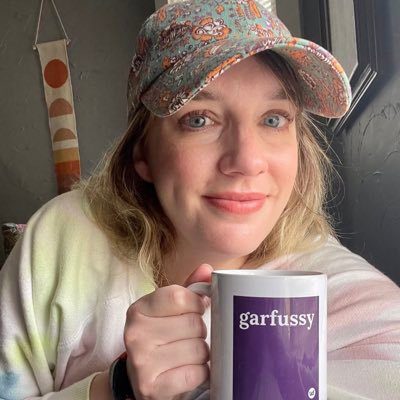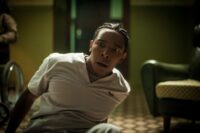Psychological drama The Integrity of Joseph Chambers debuted to positive reviews at Tribeca, and it’s not the first time that director Robert Machoian and actor Clayne Crawford have teamed up to create movie magic. The pair’s first project, The Killing of Two Lovers, received rave reactions upon its release in 2020 – and film editor Yvette M. Amirian was more than ready to jump on board for the duo’s second outing.
Cassie Hager sat down with Robert and Yvette to discuss the movie’s message, its striking soundtrack, and how the pandemic encouraged the cast and crew to get creative in their collaborative efforts.
Cassie: Congratulations on the great movie. How has the reception been so far? What have you been hearing?
Robert: I’ve been really excited, so far, at the reception. One thing that is really exciting in my experience is that the film requires you to bring the perspective of the individual who is watching it. There is this “what would you do?” element to the film. It’s not experienced in only one way. That’s really exciting.
Cassie: You have worked with Clayne Crawford before in The Killing of Two Lovers. What was it like the second time around? Was the dynamic any different?
Robert: I would say that making a second film, you end up knowing each other’s process a little bit more. Clayne, for example, is not a fan of doing lots of takes, and likes to do really long takes. He also prefers to work organically. I was probably a little more prepared in the collaboration for what we would be dealing with.
Cassie: There is a scene that really stuck out to me, and as you were saying, it was one long take. Without giving anything away, Joe goes out to his truck and experiences a lot of different emotions. I was just blown away. Talk me through the process of shooting a scene like that.
Robert: We have maybe six people on set, and I think one of the things that is so important with this scene is that any non-essentials need to be gone so they are not a distraction. Everyone else who is there needs to, for the most part, not move. That is sort of challenging because we use a dolly as this scene is occurring, so Jack Lott (key grip) and I had to have a conversation about how the dolly would be moving. It’s really just about having a dialogue.
Cassie: Yvette, when you are going through all the footage, do you ever just watch and think “Wow… these people are awesome!”
Yvette: Definitely! We have such a talented cast and crew, and I had this wealth of material to work through. Decision making was challenging, but a lot of fun. Robert is very calculated in what he shoots. He has a clear vision, but he also gives you a lot of options. What I love about working with Robert is he is really trusting… especially in the early stages. He just wanted to see what I would do with it. He allowed me to do my thing, but I wanted to have what he wanted in my ear, as well. The rest of the process was really collaborative, and we were constantly passing things back and forth, which was really cool.
Robert: This was a unique situation because it was in the middle of COVID. In a normal situation, Yvette and I would be sitting in the same room. But one of the things you don’t want to do as a filmmaker is go down a giant rabbit hole and realize you wasted so much time. I think Yvette and I talked a lot more than we ever did just sit and critique specific edits. I appreciated the fact that we had a dialogue, she would go edit, and then we would watch it back. That allowed me to realize where she was coming from and how she was experiencing the material.
Yvette: That was the other thing—I didn’t get to be on set, when in other cases I might have been able to be there while they were working. That gave me a lot of distance from the shooting and allowed me to see it with fresh eyes.
Cassie: Now that you’ve done it both ways, is there one way you prefer?
Yvette: I think there are benefits to both. I know there are editors who famously say they make it a rule never to go on set. I think in this day in age, it is important to be involved. Especially if you are working with restricted budgets or time constraints. It helps to quickly say, “oh, this isn’t working.” Thankfully, we didn’t have a lot of that with this film because they did such a great job. Like Robert said, it really forced us to talk a lot more. Whereas when you are in the same room, you are just sort of looking at the footage instead of being forced to talk about it. So that was one benefit that came from having that distance during the pandemic.
Cassie: I have to bring up the soundtrack and the use of sound in this movie. The tension building and the way it sets the mood… it just really stuck with me.
Robert: As it relates to Yvette and my collaboration, we knew sound was going to play a very important part. It’s a tricky aspect of editing, because you are editing with no sound. One of the things Yvette sent initially had a temp track on there, and I didn’t even want to use that. I didn’t want to get comfortable with anything that wasn’t what Peter Albrechtsen (sound designer) was going to do. Clayne would be looking at cuts, and it would feel like the shots were a little bit long. But you knew it needed to be that long, because sound was going to play a significant role.
Yvette: Having watched The Killing of Two Lovers, I knew sound was going to play an important role. In a lot of films, it’s sort of the last thing they think about, but Robert was thinking about it consistently throughout shooting and cutting. That was a challenge for me, because I am very accustomed to doing sound design. I wanted music to help me pace. I put in very basic things like doors shutting the background forest sounds and things like that. Peter and our composer took it to this whole new level, which was really exciting.
Cassie: Let’s talk about the ending. What is the goal? Do you want the viewer to be putting themselves in Joe’s shoes?
Robert: In many ways, it’s a parable. In the context of this film, I wanted to write about the story itself, but I also wanted to speak about the human condition. Often, our initial approach is to make decisions that we think are to benefit the greater good but in reality, are just to serve us. So, there is an open aspect to the ending, but at the end of the day, what will happen is Joe is going to make sure the best narrative is set forward. Whatever puts him in the best situation is the end game.
One thing that was very interesting in relation to Yvette and I editing—there is this line in the end where Clayne says, “I want to see Tess and the boys.” That is not in the script. Initially, I thought Clayne was using this as an actor to get in the right space and give a great performance. Yvette put it in the cut, and I was like, “Oh, but I didn’t like it.” I initially really didn’t like it, but I just sat with it, because she had made this creative decision. Eventually, I began to understand that this wasn’t Joe really wanting to see Tess and the kids, rather a manipulation tool to make the sheriff more compassionate. It goes back to other parts in the film where he lays this groundwork where he is very much concerned about himself. These subtle lines that Yvette chose finalized that for me. At the end of the day, Joe is going to do what is best for him.
Cassie: Well, I’m starting to see the film in a whole new light now! What’s next for the film as far as distribution goes? How are people going to see it following Tribeca?
Robert: We are talking to a distributor right now. I can’t announce anything specific but I’m pretty excited and hopeful that people will get to see it in the theater. I’m happy with the conversations we are having, and I hope it turns into something very positive.



